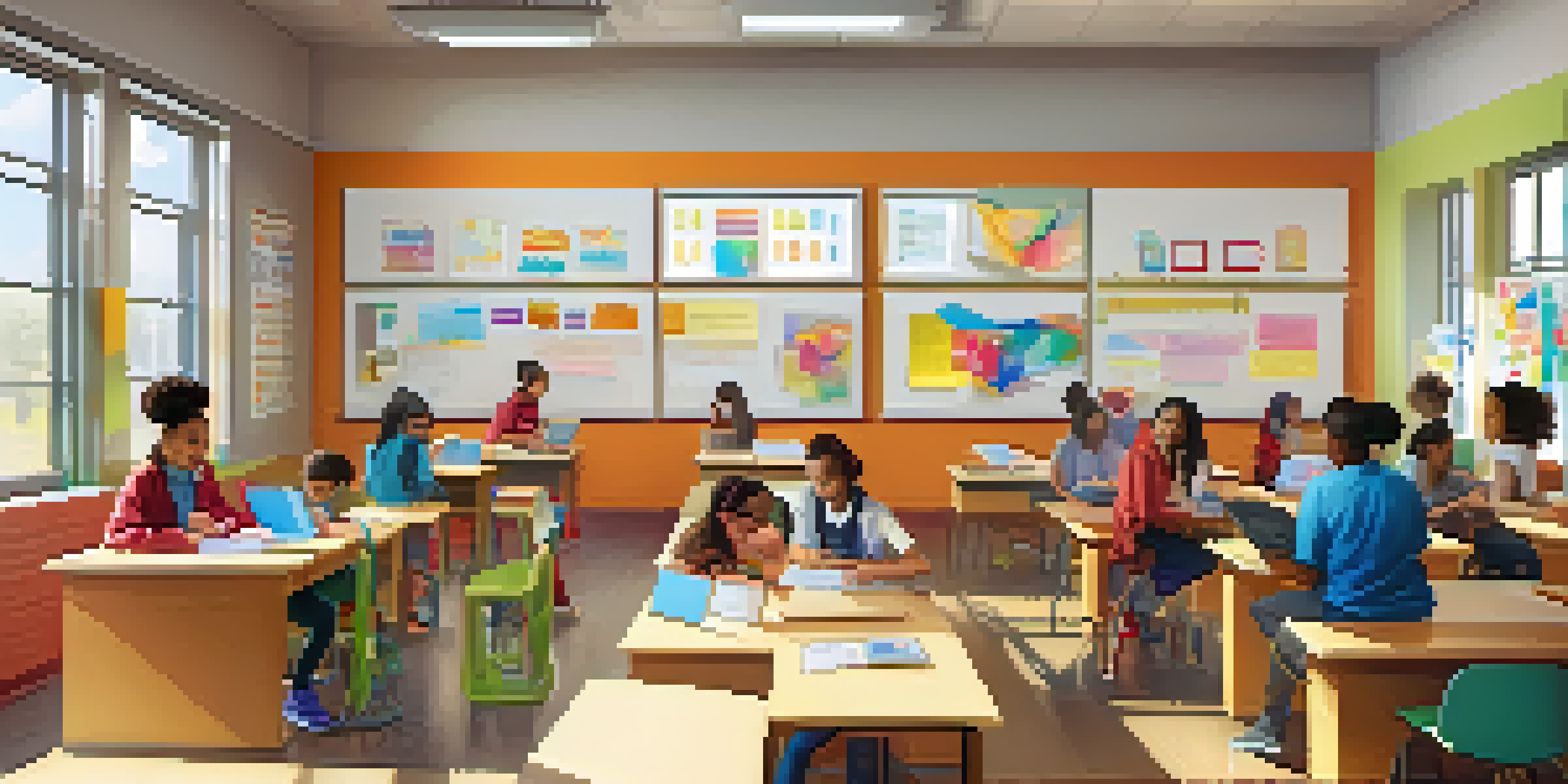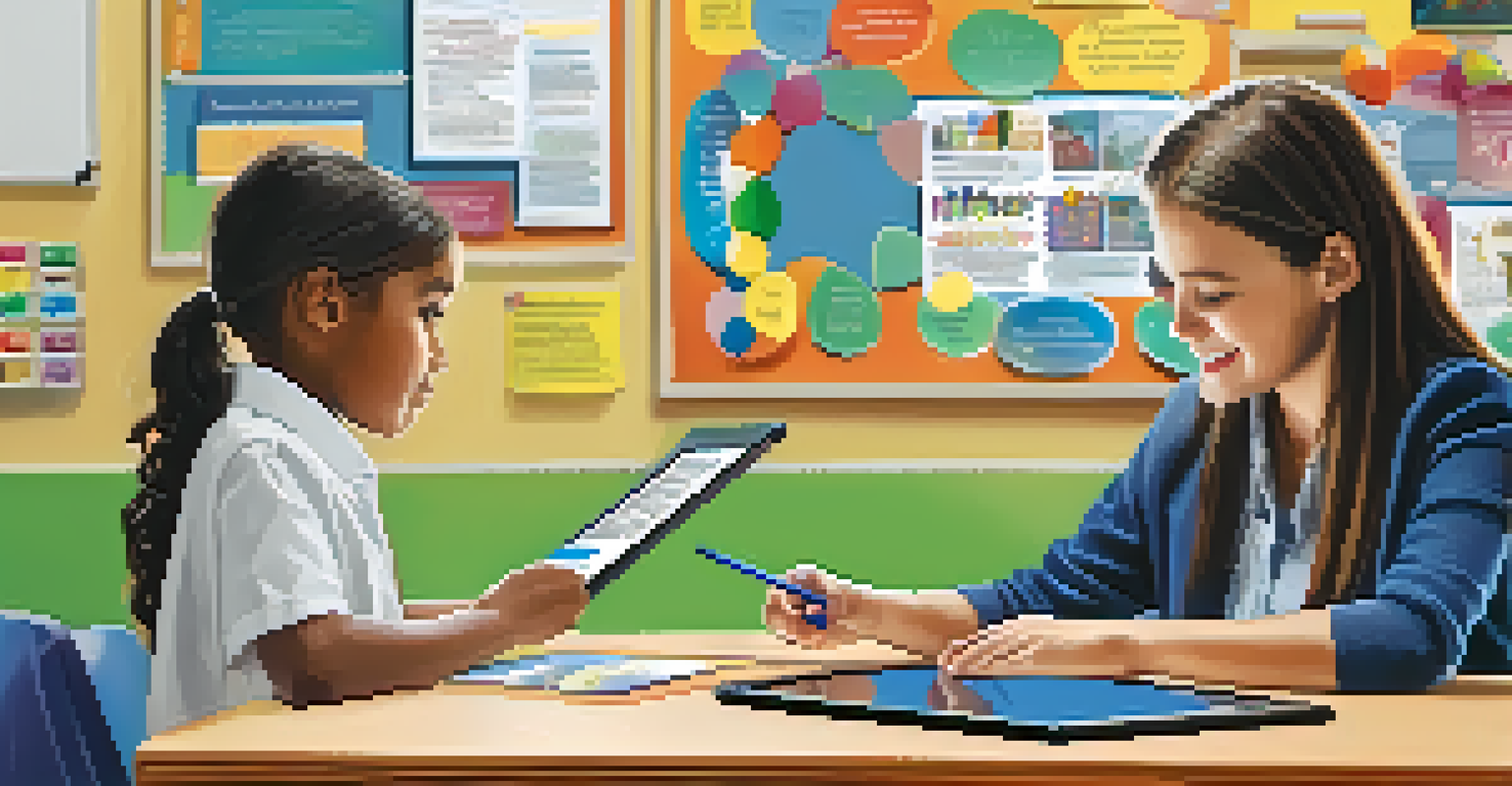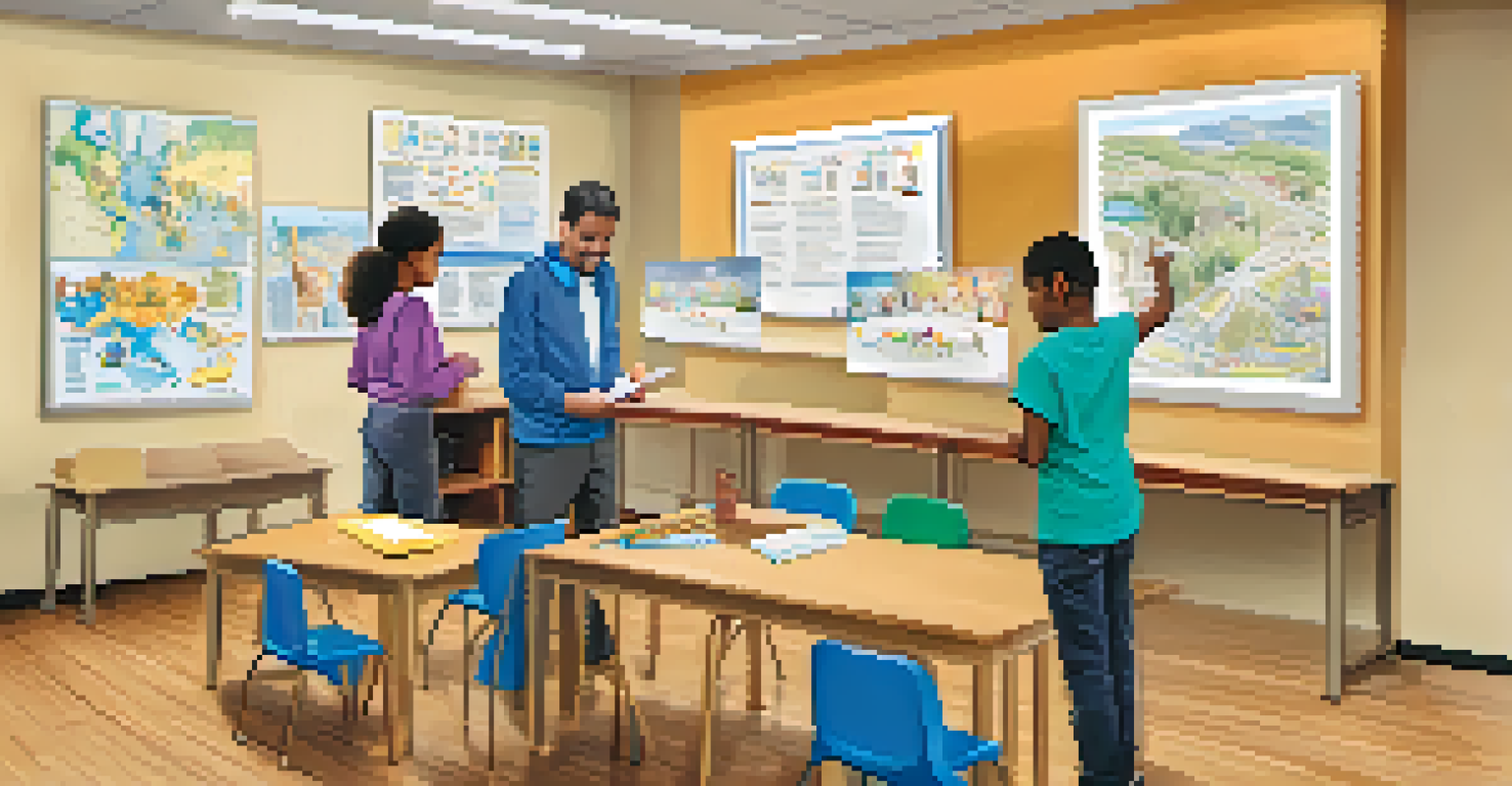The Future of Personalized Learning: Innovations and Predictions

Understanding Personalized Learning in Today’s Context
Personalized learning tailors education to meet individual student needs. It recognizes that each learner has unique strengths, weaknesses, and interests, allowing for a more engaging experience. In today's diverse classrooms, this approach fosters motivation and improves outcomes by focusing on the learner's pace and style.
Personalized learning is about meeting students where they are and giving them the tools they need to succeed.
With technology advancing rapidly, educators are now equipped with tools that facilitate this customization. Online platforms and adaptive learning software are becoming increasingly popular, providing resources that adjust in real-time to a student's performance. This shift not only enhances learning but also encourages a sense of ownership in students.
As we delve into the future of personalized learning, it’s essential to consider how these innovations will evolve. The concept is not just about technology; it’s about creating a supportive environment where every learner can thrive, blending traditional methods with modern approaches.
The Role of Technology in Shaping Personalized Learning
Technology plays a pivotal role in the evolution of personalized learning experiences. From learning management systems to artificial intelligence, these tools provide insights that were previously unattainable. They enable educators to analyze student data and make informed decisions about instructional strategies.

For instance, AI-driven platforms can assess a student’s progress and suggest resources that align with their specific learning path. This not only optimizes the learning experience but also makes it more engaging. Imagine a classroom where each student has a tailored curriculum that adapts to their unique journey!
Personalized Learning Enhances Engagement
By tailoring education to individual needs, personalized learning fosters motivation and improves student outcomes.
As we look ahead, the integration of technologies like virtual reality and augmented reality could further enrich personalized learning. These innovations promise immersive experiences that cater to varied learning styles, making education not just a requirement but a truly enjoyable adventure.
Innovative Approaches to Curriculum Design
Innovative curriculum design is crucial for fostering personalized learning. Educators are moving away from one-size-fits-all approaches and are instead crafting curricula that allow for flexibility and choice. This shift empowers students to take charge of their education by selecting topics that resonate with them.
The future of education is not about how much we can teach students, but how well we can understand their individual needs and help them thrive.
Project-based learning serves as a prime example of this approach. Students can engage in real-world projects that align with their interests, promoting deeper understanding and retention of knowledge. This method encourages collaboration and critical thinking skills, which are vital in today’s job market.
As we anticipate the future, we can expect even more personalized curriculum designs that incorporate student feedback and interests. This collaborative approach not only enhances engagement but also prepares students for a dynamic world that values adaptability and creativity.
Data-Driven Insights for Tailoring Learning Experiences
Data is the backbone of personalized learning, providing insights that help educators understand student needs. By analyzing learning patterns, performance metrics, and engagement levels, educators can make informed decisions about instructional methods. This data-driven approach allows for timely interventions when a student struggles.
Imagine a scenario where a teacher receives alerts about a student falling behind in a specific area. With this knowledge, they can implement targeted support strategies that address the student's challenges. This proactive approach not only aids in academic success but also boosts student confidence.
Technology Drives Custom Learning
Advancements in technology, such as AI and adaptive platforms, enable educators to create highly personalized learning experiences.
Looking forward, the ethical use of data will be paramount. As personalized learning continues to grow, ensuring student privacy and security will remain a top priority. Balancing innovation with responsibility will shape the future landscape of personalized education.
The Impact of Educator Training on Personalized Learning
Effective personalized learning hinges on well-trained educators who understand how to utilize new tools and methodologies. Professional development programs are crucial for equipping teachers with the skills needed to implement personalized strategies effectively. Continuous training ensures that educators can adapt to new technologies and teaching practices.
Moreover, fostering a growth mindset among educators is essential. When teachers embrace change and view challenges as opportunities for growth, they can model this mindset for their students. This creates a culture of learning where both educators and students are encouraged to explore and innovate.
As educational institutions prioritize personalized learning, investing in comprehensive training programs will be key. This commitment to professional development will empower educators to create meaningful, personalized experiences that cater to diverse learners.
Collaboration and Community in Personalized Learning
Personalized learning thrives in collaborative environments where students, educators, and families engage together. Building strong communities around education fosters support and shared responsibility for student success. This collaboration helps create a culture where personalized learning can flourish.
Schools can facilitate this by involving families in the learning process. For example, hosting workshops or informational sessions can equip parents with tools to support their children's unique learning paths at home. When families are engaged, students feel more supported and motivated to succeed.
Community Support Boosts Success
Collaboration among students, educators, and families creates a supportive environment that enhances personalized learning outcomes.
Looking ahead, schools that embrace community involvement will likely see more successful personalized learning outcomes. By creating a network of support, personalized education can extend beyond the classroom, enriching the overall learning experience.
Predictions for the Future of Personalized Learning
As we gaze into the future of personalized learning, several trends are likely to emerge. Increased integration of artificial intelligence will allow for even more sophisticated adaptive learning systems that can cater to individual student needs. This evolution will create highly tailored educational experiences that maximize student potential.
Moreover, we can expect a greater emphasis on social-emotional learning (SEL) within personalized frameworks. Recognizing the importance of emotional well-being will lead to holistic approaches that nurture not just academic skills but also social competencies. This balance is essential for preparing students for the complexities of the modern world.

Ultimately, the future of personalized learning promises to be dynamic and inclusive. By embracing innovation and collaboration, we can create educational environments where every learner has the opportunity to thrive, paving the way for a brighter, more empowered generation.